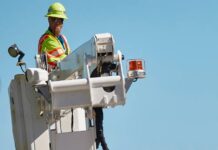The intent is that Vodafone Italy is all set to merge with Fastweb, a Swisscom-owned Italian broadband operator. It is well to be noted that the €8 billion goes on to represent a multiple of around 26x Vodafone Italy’s forecasted operating free cash flow for the present financial year and 7.6x adjusted EBITDAaL.
Apparently, in December 2023, another suitor, Iliad, went ahead and tabled an offer for Vodafone Italia, with a prior entire takeover bid rejected around two years earlier. Its 50:50 joint venture preposition valued Vodafone Italia at an EV of almost €10.45 billion and would have gone on to have Vodafone receive €6.5 billion in cash along with a €2 billion shareholder loan; however, the deal was ultimately rejected.
It is worth noting that the Swisscom transaction happens to be conditional on particular regulatory approvals like the clearance by the Italian Competition Authority.
This follows Vodafone’s Spanish business sale to the UK-based investment firm Zegona Communications in October 2023 for €5 billion. Both transactions happen to be pitched as part of a broader rejigging when it comes to the company’s European footprint.
Vodafone Group Chief Executive, Margherita Della Valle went on to say that she was announcing the third as well as the final step when it comes to reshaping their European operations. Henceforth, their businesses will operate in the growing telco markets where they happen to be holding strong positions, thereby enabling them to deliver much more predictable, robust growth across Europe. This is going to be teamed with acceleration within the B2B, as they go ahead and continue to take share within a digital services market that’s indeed expanding.
The Vodafone Italy sale to Swisscom goes on to create a prominent value when it comes to Vodafone and makes sure that the business goes ahead and maintains its leading position throughout Italy, which happens to be built via dedicated commitment of their colleagues when it comes to serving their customers through many years.
She added that the transactions in Italy as well as Spain will go on to deliver €12 billion of upfront cash proceeds, and they do intend to return €4 billion to the shareholders by way of buybacks, as part of their broader capital allocation review.
It is well to be noted that the firm will now be organized across five business divisions, namely European Markets; Germany; Africa; Vodafone Business, and Vodafone Investments.
The executive structure will also be witnessing changes, with the likes of Philippe Rogge stepping down from the position as CEO of Vodafone Germany and quitting the firm. Ahmed Essam is already the Executive Chairman of Vodafone Germany as well as the CEO European Markets, having ownership of Albania, the UK, Czech Republic, Ireland, Greece, Portugal, Romania, as well as Turkey.
Serpil Timuray is going to be the CEO of Vodafone Investments, thereby covering Vantage Towers, Vodafone Idea, Vodafone Ziggo, as well as TPG Telecom.
Apart from this, everywhere else, Marcel de Groot has taken over as the new CEO of Vodafone Germany, with Max Taylor becoming the CEO of Vodafone UK, both of whom would be reporting to Essam.
Of the latter appointment, analyst at CCS Insight said that Max Taylor is going to be taking on one of the biggest roles within the UK telecom space at a time of huge significance since Vodafone looks out for regulatory clearance in terms of its blockbuster merger with Three. Should the deal get approved, Taylor will head the UK’s largest mobile provider, with a combined 28 million customers, which is indeed a position of massive influence.
The appointment happens to be in recognition of Taylor’s robust and sound commercial and marketing expertise. As he is to eventually lead a merger of Vodafone and Three, he will need to lean on his overall experience so as to bring the two brands together, create new commercial propositions, and bring competition that’s fresh to BT.
Della Valle went ahead and presented a turnaround plan for the company in May 2023, saying that their performance hasn’t been good enough and that to deliver consistently, Vodafone has to change.
Shedding the regional businesses that were not performing financially to their respective capacities was clearly part of this kind of change, and another key aspect in Vodafone’s future path is going to be the proposed merger in the UK with Three, which happens to be awaiting imperative regulatory approval.




















